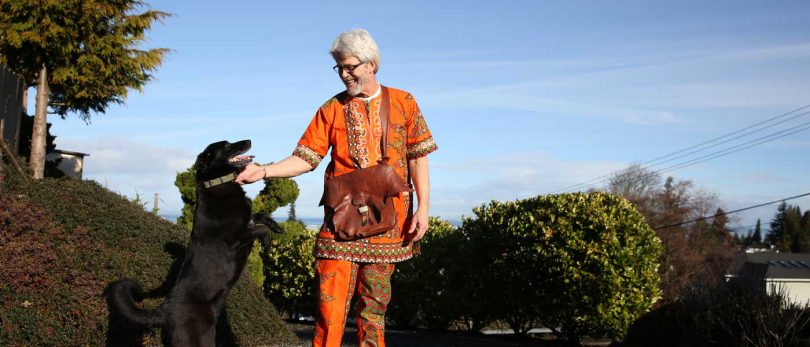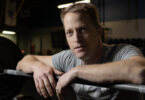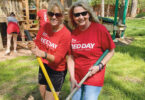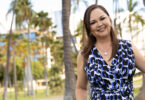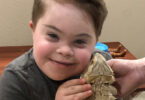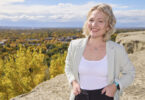Peer-to-Peer: Doc Reiss, Port Angeles, Washington
How and when did you get started in real estate?
I was a contractor who specialized in crawlspace and foundation work as well as bathroom remodeling, but after six years of a perfectly clean record, our insurance company dropped us, so we folded.
I was involved in the Nor’Wester Rotary’s summer event and my main sponsor was Terry Neske, an owner of the local Windermere office.
I told him what had happened and he said, “You ought to get into real estate. You know people in the community. People know you. And you have a background as an independent contractor. You could do this.” And I did … right at the beginning of the bubble in 2005.
What motivated you to become a CRS?
I was always fascinated by the CRS Designation, so I decided to take a class to see what it was about. I fell in love with the education and wanted the designation. I had seen how the Council was helping me advance professionally by having greater knowledge about real estate procedures and customer relations.
How is real estate changing?
Technology is changing the industry in some ways and the media we use to promote properties. Customer engagement is taking different avenues as well. For instance, an app might be able to guess a home’s value based on statistical data, but it is not going to beat a set of eyeballs that understands the value of aesthetics. This is why people will be relying more and more on the expertise of their REALTOR®. This is a people business.
As long as there are sellers who believe their home is worth more or buyers who are not quite sure how the process works, a REALTOR® will never be out of demand. The internet is great only if you know what you are looking for and what to ask. A REALTOR® knows the complexities of a transaction because of our education and experience. And we know how to communicate to our clients in their best interests. As one co-worker remarked, “When the ‘you-know-what’ hits the fan in a transaction, do you really want to be relying on an app?”
What do you like about working in Port Angeles, Washington?
Port Angeles is not a place most people know about. It’s a place they discover. We have over a million acres of national forest in our backyard and the Strait of Juan de Fuca in front of us. We have bears and bald eagles, whales and seals, blue herons and otters, more wildlife than most folks read about. It’s a small town with a quirky history. The people who come here bring their culture with them.
What’s your life like outside real estate?
My son works out of state for most of the year, so it’s generally me and the dogs, Star and Moose. When my days aren’t occupied by them, I am a board member of the local association and an active member of my Rotary Club. I am on a committee that is working with a service project in Togo, Africa, where more than 40 percent of the people—and almost every family in the village of Zogbedgi where we work—have to go to the bushes to use the bathroom. We build “Dignity Toilets,” concrete, self-composting toilets. Each one takes a family out of the bushes, improves the groundwater, helps improve sanitation and provides safety to the women and children.
Can you tell us more about that?
I helped a friend in Zogbedgi, Taouvik, build the first one using plans from the Togolese government. He figured out the plans and I sold a house and sent him money to build it. After that, a neighbor asked what it would take for him to get one for his family. Then another and another. Soon, we had a list of over 12 families that wanted one. Tao modified the plans to make it more economical and we started building them much like Habitat for Humanity’s practice, where every family had to participate in some way to have a sense of ownership. When we had built eight and had it down in both procedure and cost (a Dignity Toilet will last for generations and costs about $400 to build), I approached my Rotary club and they agreed to take on the project. In the last 10 months, they have built 19 more.
I recently went to the village and saw the project. It is sorely needed. I helped build one and figured out how we could increase production and cut our labor costs by 46 percent. With the right funding, we will be able to build 12 to 16 a month. Now back in Washington state,
I am making presentations to clubs and organizations seeking donations for the Nor’Wester Rotary Foundation to fund the project.
Do you have a real estate philosophy?
I realized years ago that I do not sell houses, condos, land or commercial buildings. I help people get to the next stage of their lives, and real estate happens to be one of the keys that will get them there. My work involves helping people get there by being the best REALTOR® they can find.
What do you like about being a CRS?
The more you know and the more connected you are to other seasoned professionals, the better you can serve your customers and the better they will be for it. I strongly believe CRS is the top designation you can have because it shows a continued commitment to professionalism. I consider it a badge of honor.

Doc Reiss, CRS, achieved his CRS Designation in 2016. He can be reached at docreiss.realtor@gmail.com or 360-461-0613.

